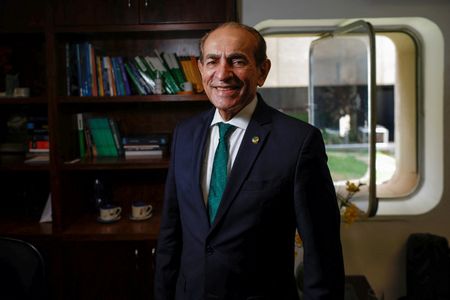BRASILIA (Reuters) -A controversial proposal to make room for more spending in the 2023 budget under Brazil’s President-elect Luiz Inacio Lula da Silva was formally presented to Congress on Monday, providing for a shorter welfare waiver but maintaining its annual impact.
Brazilian Senator Marcelo Castro, the point man for next year’s budget, said that he filed a constitutional amendment backed by Lula to exempt the “Bolsa Familia” welfare program from a constitutional spending cap for four years starting in 2023.
Earlier in November, he had said that Lula wanted to permanently strip the program from the cap known as Brazil’s main fiscal anchor.
The program is slated to cost 175 billion reais ($33 billion) annually based on Lula’s campaign promises.
But the bill filed by Castro also removes some public investments from the cap, opening space for another 23 billion reais in public spending next year, bringing its total impact to nearly 200 billion reais.
Along with Lula’s latest remarks downplaying fiscal responsibility over social needs, the proposal had triggered negative market reactions, with economists warning it could push public debt to record levels and force a monetary policy shift.
Castro acknowledged in a statement that the text would undergo changes in Congress.
“Given the short time we have to approve the proposal to amend the Constitution, and because it is absolutely essential for the country’s governance next year, we will make the necessary adjustments for approval during its course,” he wrote.
Lula, who arrived in Brasilia on Sunday for negotiations on the proposal, campaigned against the constitutional spending cap but has not yet specified which rule he will support to replace it, nor has he indicated who will run economic policy in his administration.
The leftist leader takes office on Jan 1.
($1 = 5.3654 reais)
(Reporting by Ricardo Brito and Marcela Ayres; editing by Jonathan Oatis and Stephen Coates)





